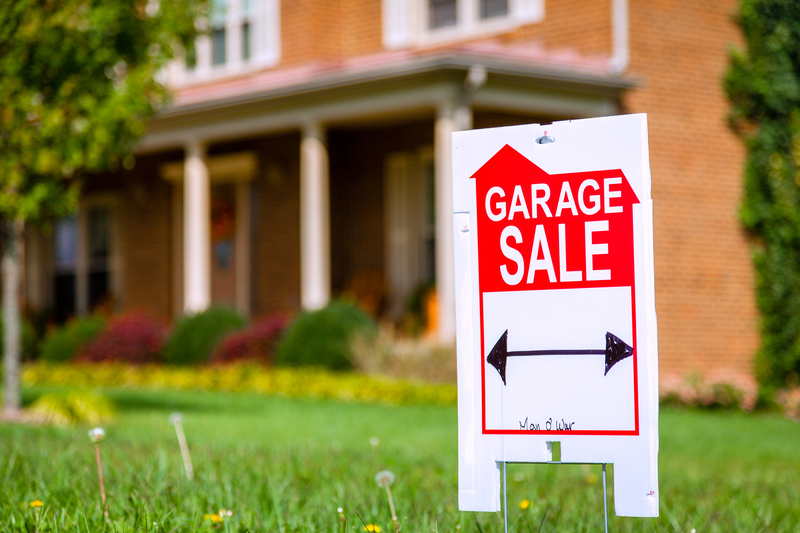Economical Strategies for Getting Rid of Bulky Waste Items
Bulky waste items--such as old furniture, appliances, mattresses, and garden debris--can quickly clutter up your home or business if left unchecked. Finding cost-effective solutions to dispose of these unwanted items is essential for maintaining a clean environment and saving money. Whether you're undertaking a major home renovation or simply clearing out a garage, understanding the best economical waste disposal strategies can simplify your life. In this comprehensive guide, we'll explore various methods that help you efficiently and affordably get rid of large waste items while adhering to local regulations and protecting the environment.
Understanding Bulky Waste: What Qualifies?
Before discussing budget-friendly disposal strategies, it's crucial to understand what falls under the category of bulky waste items. Typically, this includes:
- Home furnishings (sofas, beds, dressers, mattresses)
- Large household appliances (refrigerators, washing machines, ovens)
- Garden waste (branches, old fencing, sheds)
- Carpet, large rugs, and flooring materials
- Construction and renovation debris (bathtubs, sinks, doors)
These items are often too big or heavy for regular curbside collection, which leads to the need for specialized, but economical, waste removal strategies.

Why Economical Disposal Matters
The efficient management of bulky waste doesn't only prevent clutter--it can save you money and benefit the environment. Improper disposal may result in hefty fines, environmental harm, or unnecessary hauling costs. By choosing smart and affordable disposal techniques, you also help decrease landfill pressure and may even support your local community.
Top Economical Ways to Get Rid of Bulky Waste Items
-
Reuse and Repurpose: Creative Solutions
The saying "one man's trash is another man's treasure" rings especially true for large items. Consider these low-cost alternatives before opting for disposal:
- Refurbish: Give your old furniture or appliances a makeover with paint, new hardware, or simple repairs.
- Repurpose: Convert an old door into a coffee table or wooden pallets into garden planters.
- Upcycle: Use materials from bulky items for DIY projects around your home or business.
Repurposing bulky waste keeps usable items out of landfills and can save money on buying new products.
-
Donate to Charity or Local Organizations
Many charities accept gently-used furniture, appliances, and home goods. Donating is one of the most economical and eco-friendly ways to dispose of large waste items. Not only do you avoid disposal fees, but you might also be able to claim a tax deduction. Consider donating to:
- Thrift stores (Goodwill, Salvation Army)
- Local shelters or community centers
- Habitat for Humanity ReStores
Always check with the charity regarding accepted items and possible pick-up options. Many organizations offer free or low-cost collection services for large donations.
-
Utilize Online Marketplaces and Giveaways
The digital age has made it easier than ever to rehome large items, often at no cost to you. Platforms such as:
- Facebook Marketplace
- Craigslist (curb alerts)
- Freecycle
- Nextdoor
These platforms allow you to advertise bulky waste for free pickup by people who may need them. Clearly describe your item's condition and emphasize "free for pick-up" to encourage quick collection.
-
Arrange for Municipal Bulk Waste Collection
Most municipalities offer scheduled or on-demand bulky item waste pick-up services. This can be the most economical method if your city provides it at low-cost or as part of your regular waste services. To take advantage, follow these steps:
- Contact your local waste management or visit their website to learn about accepted items and collection days.
- Review guidelines (weight, size, preparation requirements) to avoid extra fees or rejected pickups.
- Schedule your collection in advance; many cities limit the number of bulky items per year per household.
Some municipalities hold annual bulk trash amnesty days where residents can dispose of a set number of large items for free.
-
Rent a Dumpster with Neighbors or Community Groups
If you have a significant volume of bulky items, renting a dumpster can be convenient. To keep costs down:
- Share the rental with neighbors, friends, or organize a street cleanup event.
- Compare prices and choose the right size to avoid overage fees.
- Only use the dumpster for bulky items permitted by the rental company (no hazardous materials).
Shared dumpsters can be an extremely cost-effective bulk waste removal strategy for neighborhoods tackling spring cleaning or renovations.
-
Take Advantage of Local Recycling Centers
For bulky items such as mattresses, appliances, and electronics, specialized recycling centers often accept these materials for a minimal fee or even for free. Recycling ensures the safe handling of:
- Metals (stoves, washing machines, water heaters)
- Mattresses (foam, springs, textiles)
- Large plastics (children's play equipment, outdoor furniture)
Check your town's website or Earth911 to find nearby recycling centers and review drop-off requirements. Many centers host "bulk waste drop-off days" for residents.
-
Hire Low-Cost Private Waste Removal Services
When other options aren't feasible, there are affordable junk removal companies specializing in bulky waste. To get the best deal:
- Get quotes from multiple local providers.
- Combine your bulky waste items into a single pick-up to save on per-item fees.
- Ask about discounts for seniors, veterans, or non-profit bulk removal.
While not always the absolute cheapest, hiring a service can save you time and effort--especially for heavy, hard-to-move items.
-
Check Manufacturer or Retailer Take-Back Programs
Many retailers and manufacturers are increasingly offering take-back programs for products such as mattresses, large appliances, and electronics. When purchasing a replacement item, ask if the store can collect and properly dispose of the old bulky product--often as part of the delivery service.
- Mattress retailers (check for recycling or donation partnerships)
- Appliance stores (many offer haul-away on delivery)
- Electronics brands (take-back for TVs, computers, and more)
This strategy is both economical and sustainable, eliminating disposal headaches and potentially reducing your overall costs.
Essential Tips for Economical Bulky Waste Disposal
- Plan ahead: Avoid last-minute expenses by researching local rules and schedules before disposal.
- Sort and separate: Separate reusable, recyclable, and true waste items to maximize your options for free or low-cost disposal.
- Follow regulations: Ensure compliance with weight, size, and hazardous material restrictions to avoid fines.
- Scrap for cash: Metal items--such as old appliances--may have value at scrap yards. This can offset costs or even earn you extra income.
- Combine loads: Coordinate with neighbors to fill up truckloads or dumpsters, reducing per-person costs.
Common Bulky Waste Disposal Pitfalls to Avoid
Even with a focus on cost savings, some common mistakes can derail your economical waste disposal efforts:
- Illegal dumping: Never leave items in unauthorized public spaces--it's expensive and environmentally damaging.
- Missed free events: Ignoring scheduled municipal collection days can mean missed opportunities for free disposal.
- Uninformed scrapping: Some items require professional removal (refrigerants, electronics with batteries); always check before taking them to a scrapyard.
- Overlooking donation potential: If items are in usable condition, donating or giving away is often the cheapest (and most ethical) strategy.
- Paying top dollar for urgent hauls: Booking last-minute junk removal services can come at a premium--plan ahead for best rates.

Environmental Benefits of Smart Bulky Waste Disposal
Economical strategies for bulk waste item disposal don't just save money--they benefit the planet. Here's how:
- Landfill reduction: Donation, recycling, and repurposing keep large items out of crowded landfills.
- Conserved resources: Recycling and upcycling reduce the need for new raw material extraction.
- Reduced pollution: Proper disposal ensures hazardous materials are handled safely, protecting soil and water.
- Community support: Donating items helps local charities furnish homes for those in need.
Final Thoughts: Choose the Right Bulk Waste Removal Strategy for You
Getting rid of bulky waste items economically requires a balance of planning, research, and resourcefulness. Whether through creative reuse, charitable donation, municipal pick-up, or shared dumpsters, the right disposal method will depend on your specific items, urgency, and local resources. Remember to prioritize donation and recycling whenever possible to maximize both your cost-savings and positive community impact.
By leveraging these strategies, you can efficiently, affordably, and responsibly manage bulky waste disposal--keeping your property tidy, your wallet fuller, and your community greener.
Additional Resources:
Start planning your next bulk waste removal project with these tips and transform an overwhelming task into an economical, eco-friendly success story!